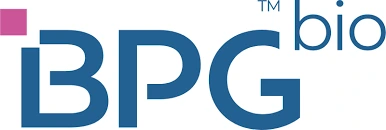
Pancreatic Cancer Subtypes Unveiled by BPGbio at ASCO GI 2025 for Tailored Treatment
BPGbio, Inc., a clinical-stage biopharma company specializing in mitochondrial biology and protein homeostasis, today revealed new findings in pancreatic cancer subtyping from its long-term Project Survival® (NCT2781012) trial. This seven-year precision medicine study focuses on advancing treatments for pancreatic cancer. The results will be presented at the ASCO Gastrointestinal Cancers Symposium, taking place January 23–25, 2025, in San Francisco, Calif.
BPGbio, Inc., a clinical-stage biopharma company focused on mitochondrial biology and protein homeostasis, has made significant strides in the fight against pancreatic cancer. The company has announced groundbreaking findings from its seven-year-long Project Survival® (NCT2781012), a multi-center clinical trial designed to better understand pancreatic ductal adenocarcinoma (PDAC) patient survival. The study, which will be presented at the 2025 ASCO Gastrointestinal Cancers Symposium, demonstrates how comprehensive biomarker discovery, combined with cutting-edge technologies, can offer new diagnostic, therapeutic, and clinical support solutions for this challenging disease.

Pancreatic cancer is one of the deadliest cancers worldwide, with a notoriously poor prognosis due to its late-stage diagnosis and rapid disease progression. BPGbio’s Project Survival® aims to improve patient survival rates by identifying molecular patterns in pancreatic cancer patients that correlate with different survival outcomes.
By employing its proprietary NAi Interrogative Biology® platform, which combines a biology-first approach with causal AI, BPGbio researchers conducted an in-depth multiomics analysis of plasma samples from 280 PDAC patients. The study revealed distinct molecular signatures linked to both long-term and short-term survival outcomes, offering hope for more personalized and effective treatments.
Madappa Kundranda, M.D., Ph.D., Chief of the Division of Cancer Medicine at Banner MD Anderson Cancer Center and principal investigator of the study, emphasized the urgent need for more precise subtyping in pancreatic cancer. “Pancreatic cancer is not a one-size-fits-all disease. One of the biggest challenges we face in treating it is the rapid progression of the disease, which often leaves us with little time to make critical decisions,” said Dr. Kundranda. “Our research aims to address this by identifying pancreatic cancer subtypes quicker, allowing us to better select patients for clinical trials and, ultimately, develop more tailored treatments that can significantly improve patient outcomes.”
The study’s findings uncovered key insights into the metabolic processes at play in pancreatic cancer. For example, elevated cholesterol metabolism was observed in long-term survivors, while short-term survivors exhibited reduced levels of specific lipids. These results suggest the potential for developing non-invasive, blood-based biomarker panels that could offer precise patient stratification and enable more personalized treatment options.
“This study identifies how critical it is to go beyond genomics in biomarker discovery in order to capture the biological diversity of patients, which impacts therapeutic decisions,” said Michael A. Kiebish, Ph.D., Vice President of Platform and Translational Sciences at BPGbio. “To effectively treat the patient, not just the disease, we must identify the right molecular signature, which can be revealed through advanced multi-omics technologies that provide a holistic view of the body’s biology.”
Current methods of identifying tumor tissue subtypes, such as the ‘Cholesterogenic’ and ‘Classical’ categories, are linked to improved survival rates but present challenges due to their invasive nature and the time required for tissue analysis. With pancreatic cancer often advancing quickly, the need for faster, less invasive methods is critical. By shifting focus from tumor tissue to patient plasma, BPGbio’s Project Survival® has unveiled valuable insights into the molecular biology of pancreatic cancer that may inform more rapid and accurate treatment decisions.
Niven R. Narain, Ph.D., President and CEO of BPGbio, highlighted the importance of taking a systems medicine approach to understanding the biological differences between diseased and non-diseased populations. “At BPGbio, we believe that understanding differences in patient biology requires a systems medicine approach. These findings from Project Survival® are a testament to the power of that perspective,” said Dr. Narain. “By expanding our focus beyond cancer tissues and performing comprehensive molecular profiling on patient plasma, we unlock critical insights into pancreatic cancer biology. This approach enables us to move toward more tailored treatments for various categories of patients, bringing us closer to the ultimate goal of this meaningful project—survival.”
The study’s results will be presented at the ASCO Gastrointestinal Cancers Symposium in San Francisco, where BPGbio will showcase the abstract titled “Lipogenic and Metabolic Subtypes Define Survival Outcome in Pancreatic Adenocarcinoma Patients”. This presentation will take place during Poster Session B on January 24, 2025, from 11:30 a.m. to 1 p.m. PST.
In addition to its work on pancreatic cancer, BPGbio is advancing the development of BPM31510IV, a lead candidate for treating aggressive solid tumors, including glioblastoma multiforme (GBM) and pancreatic cancer. BPM31510, which is also being explored in other formulations for rare diseases, has shown a favorable safety profile and potential clinical benefits across multiple indications. The compound works by modulating mitochondrial oxidative phosphorylation in tumors, promoting cancer cell death. BPM31510 has been granted Orphan Drug Designation by the FDA for its potential to treat GBM, pancreatic cancer, and epidermolysis bullosa (EB), as well as Rare Pediatric Disease Designation for primary CoQ10 deficiency and EB.
Through its innovative approach combining multi-omics analysis, AI-powered insights, and a focus on non-invasive biomarkers, BPGbio is working to revolutionize the way pancreatic cancer is diagnosed and treated, with the goal of significantly improving patient outcomes and survival rates.




